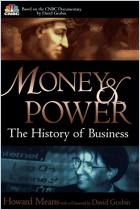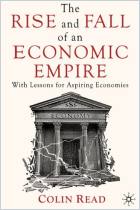
Recommendation
Though corporations have played a large role throughout history, textbooks often gloss over commerce. This entertaining history dives in, beginning with the origin of corporations in ancient Rome. Professor William Magnuson examines corporations’ role in funding the Renaissance, trade and exploration, war and peace, settlement of the American west, the invention of the automobile, and the growth of the oil industry and Silicon Valley. Magnuson makes a compelling case that, for good or ill, the corporation is fundamental to developed societies.
Summary
About the Author
Texas A&M Law School corporate law professor William Magnuson also wrote Blockchain Democracy: Technology, Law and the Rule of the Crowd.
Learners who read this summary also read
Book
Book
Book
Book














Comment on this summary